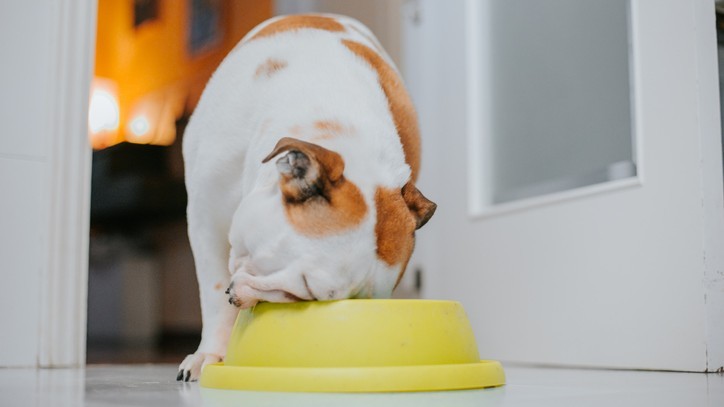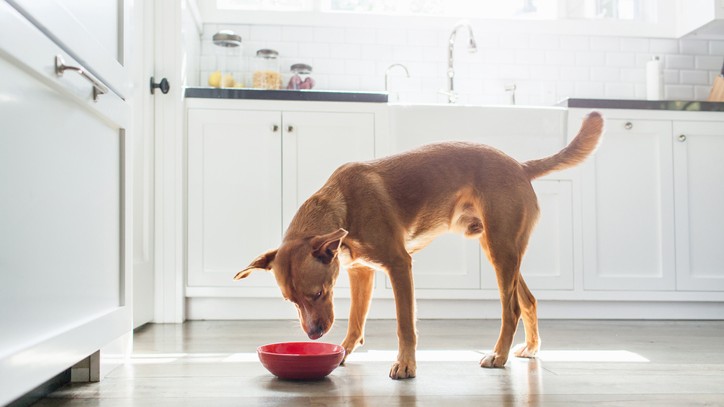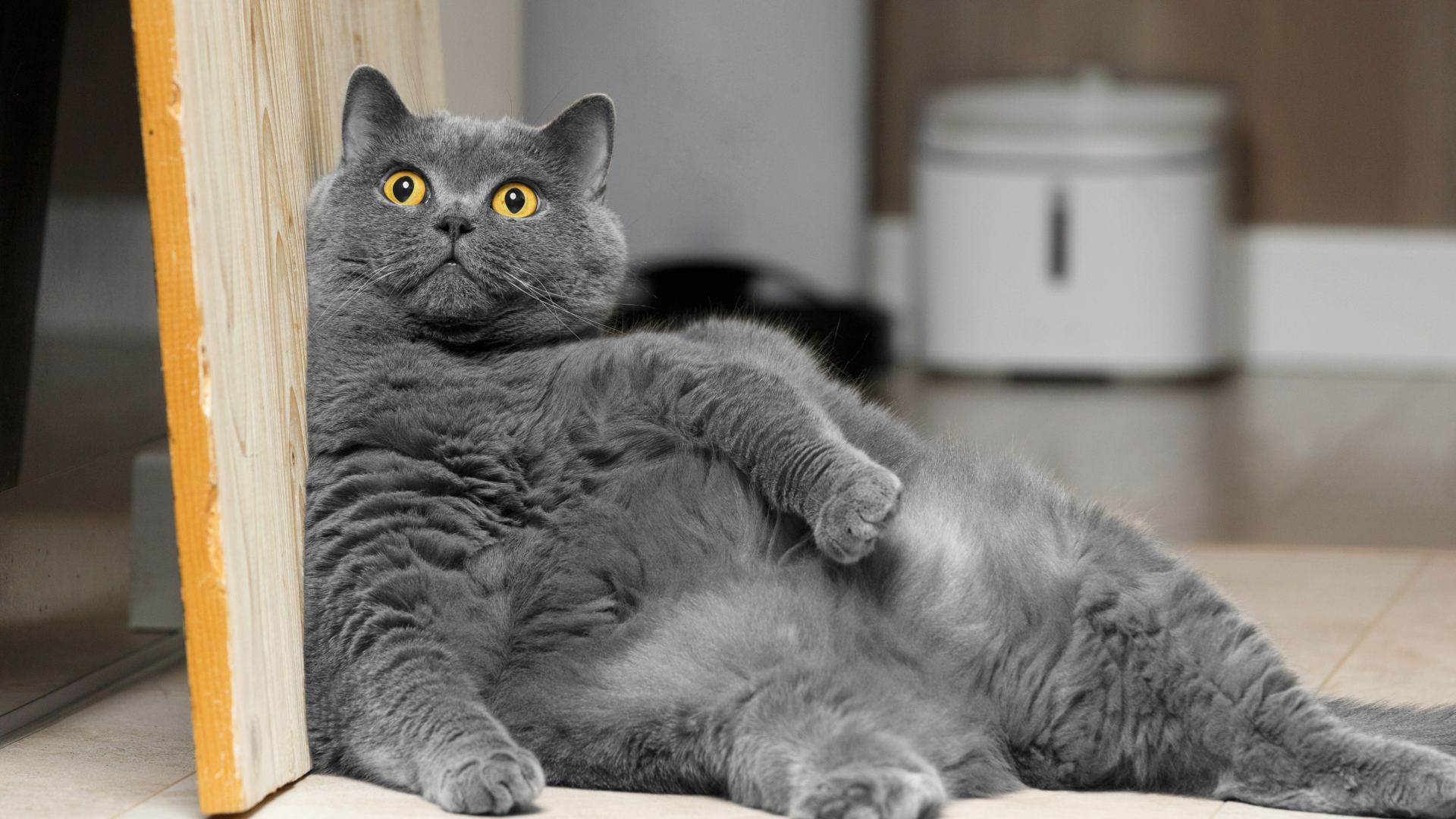Is grain free dog food best?
Is grain free dog food best? What’s the big deal? Check out these facts before making the purchase

You may have heard a lot about grain free dog food lately, but is grain free dog food best? This popular dietary choice has been in the news frequently over the past few years due to concerns about its effects on canine health. Much like the move to raw dog food, many pet owners switched to grain free food from the best dry dog food because they believed it would help their dogs. But new research has pet owners and experts alike questioning whether grain free dog food is best. Before you reach for that bag of grain free food at the pet store, let’s take a closer look at the controversy surrounding this seemingly innocuous dietary trend.
- Can a dog be vegan? We asked a vet…
- Best dog food for allergies: Keep your canine companion fighting fit with these hypoallergenic foods
- Three common food allergies in pets
- Nine tips for coping with allergic pets
What is a grain free diet?
Traditional pet foods often include grain ingredients such as oats, corn, or barley. These ingredients act as a source of protein, vitamins, and minerals for your dog. They also expand the nutrient profile of the diet, helping to ensure that all your dog’s nutritional needs can be met while eating a particular food on a daily basis. However, trends in pet nutrition often follow trends in human nutrition, and the grain free diet is a perfect example of this. As concerns about gluten allergies and grain intolerances became popular hot-button topics in human nutrition, pet owners began looking for gluten and grain free options for their animals, too. This led to pet food manufacturers creating a wide variety of grain free products. Some grain free dog foods also use exotic protein sources, such as kangaroo, venison, or alligator. Others substitute legumes such as peas, lentils, and beans in place of grains. The only common feature between all of these diets is that they avoid the use of grains.
Why are grain free diets a concern?
Since 2018, grain free diets have been under scrutiny for their association with a condition called dilated cardiomyopathy, or DCM. DCM is a common heart condition in dogs and it occurs rarely in cats. In dogs, this condition can cause weakness, shortness of breath, coughing, exercise intolerance, collapse, and even death. DCM primarily occurs in breeds that have a genetic predisposition to developing it, such as Boxers, Dobermans, and the Cavalier King Charles Spaniel. Concerns about grain free diets arose when it was noted that dogs from breeds not commonly affected by DCM were developing the condition, and these affected patients were eating grain free diets. To date, the United States Food and Drug Administration (FDA) has identified over 500 confirmed cases of DCM in dogs eating grain free diets, and nine confirmed cases in cats. However, researchers have not yet identified what it is about grain free diets that may have predisposed these animals to developing DCM. The FDA’s investigation is ongoing, and to date no direct link between grain free diets and DCM has been identified.
What are the benefits of grain free diets?
Interestingly, there has been no scientific data to demonstrate any benefit to feeding a grain free diet to dogs. Some pet owners argue that their dogs may have a gluten allergy, but in reality gluten allergies are exceedingly rare in dogs and cats, (see Four common allergies in dogs). Except in very specific cases, most dogs have no problem tolerating a diet that includes grains. In her blog post “In Defense of Grains”, board certified veterinary nutritionist Dr Lisa Weeth breaks down the use of grains in pet food and cautions pet owners that there is no reason to vilify these versatile ingredients.

My dog eats a grain free diet. Should I switch dog foods?
The FDA has released a list of dog food brands most commonly associated with dilated cardiomyopathy in dogs. However, the agency has also cautioned that a direct link between these diets and the development of DCM has not been identified, so pet owners may not need to change their dog’s food based on this information alone. Any changes in your dog’s diet should be discussed with your veterinarian. Every dog has different dietary needs, so your veterinarian is your best resource to help you choose an appropriate food for your dog.
Many pet owners have asked whether simply adding grain to the dog’s food will prevent DCM. Unfortunately, we do not yet know enough about the association between grain free diets and DCM to make this recommendation. Some researchers have hypothesized that it is not the lack of grains in the diet that causes problems, but rather the increased use of ingredients such as potatoes, legumes, and pulses in grain free diets. Others have questioned whether a taurine deficiency in the diet or a problem absorbing and utilizing taurine is to blame. It is also important to note that not every dog eating a grain free diet develops DCM. Veterinary nutritionists have also warned that other types of diets, such as those containing exotic ingredients or those produced by boutique brands, have also been implicated in recent DCM cases. Ultimately, much more research is needed for us to fully understand the association between diet and dilated cardiomyopathy in dogs.
How will I know if my dog has DCM?
In dilated cardiomyopathy, the heart becomes enlarged and does not pump blood effectively. Over time, this can cause a backup of fluid called congestive heart failure. Dogs with DCM may experience symptoms such as:
- Decreased energy
- Cough
- Weakness
- Reluctance to exercise
- Difficulty breathing
- Collapse
However, it’s important to note that not every case of DCM is caused by diet and there are also other medical conditions that can cause similar symptoms. If your dog is experiencing any of the symptoms above, see your veterinarian right away to have the problem diagnosed. If your veterinarian suspects that the problem was caused by your dog’s diet, he or she may recommend that you submit a report to the FDA.
Are grain free dog foods best? The controversy continues
The association between grain free dog foods and dilated cardiomyopathy is complex and still poorly understood. Much more research is needed before we can truly understand whether grain free dog food is best, but to date no proven benefits of grain free food have been identified. When choosing a pet food for your dog, it’s always helpful to discuss your options with your veterinarian. Your veterinarian can help you determine the best diet to meet your dog’s unique needs.
PetsRadar Newsletter
Get the best advice, tips and top tech for your beloved Pets
Dr. Elizabeth Racine is a small animal general practice vet covering all things pet health and wellness. Her special interests include veterinary behavior, nutrition, and internal medicine.
As a freelance writer, Dr. Racine has written content for major companies in the industry such as the American Kennel Club, Merck Animal Health, Bayer PetBasics, Elanco, and CareCredit. In her free time, Dr. Racine enjoys playing trampoline dodgeball, hiking with her beagle Dasher, and spending time with her three mischievous cats.

